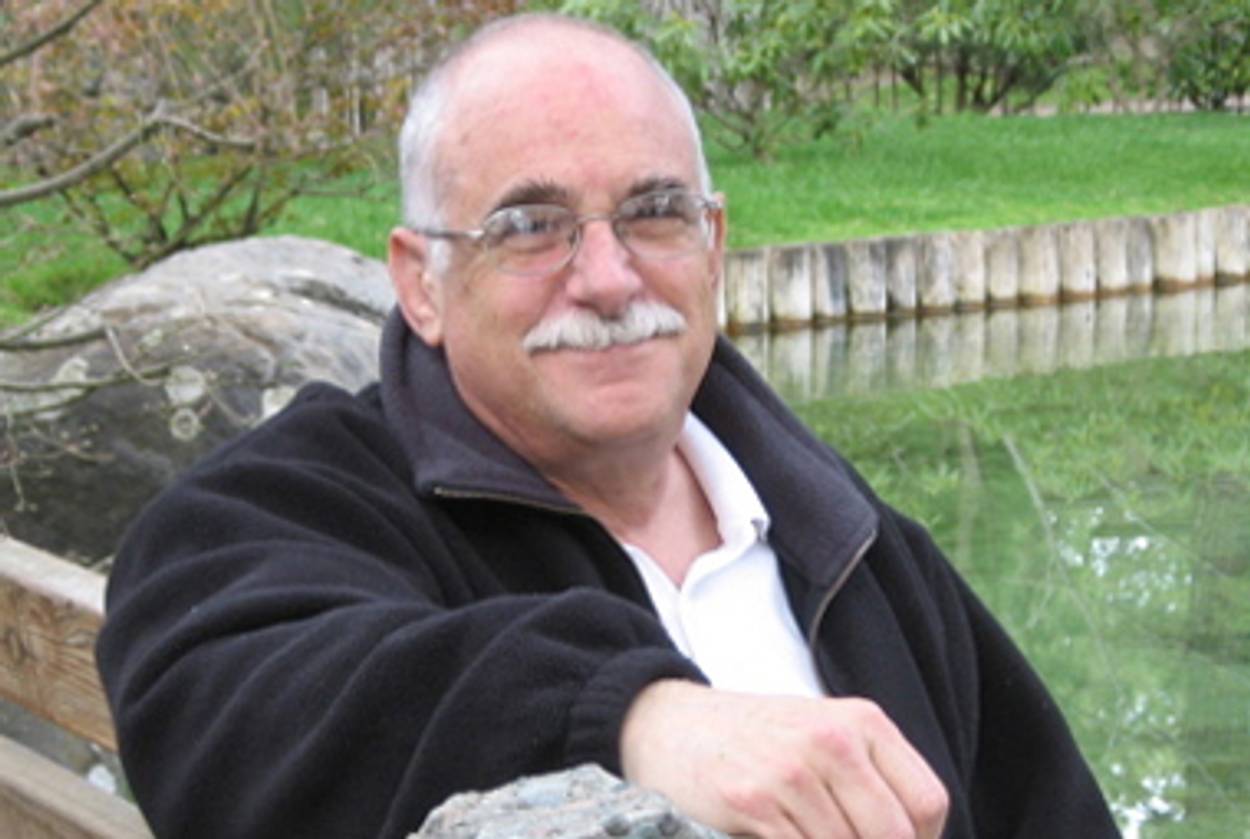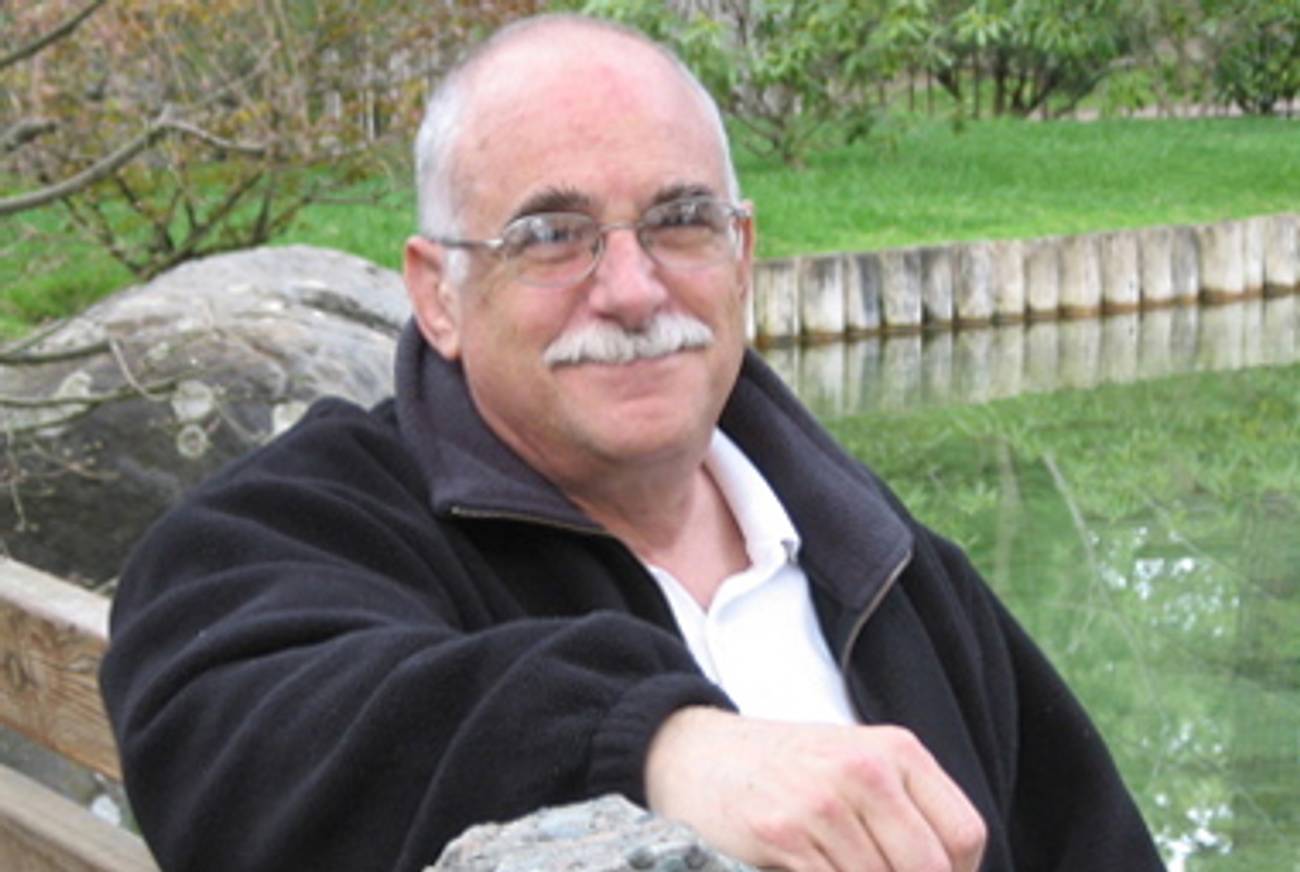Two Non-Jews, One Jewish Marriage
Rabbi Block’s open-door wedding policy




Last month, the Washington Post reported on a Jewish wedding, complete with huppah, ketubah, and rabbi, in which neither bride nor groom was Jewish. The officiant was Rabbi Kenneth Block, and quick Googling revealed that this “Rabbi on the Go” is on a mission: to show and to demonstrate that (to quote from his Website) “there is no ‘right way’ to have or do a wedding or commitment ceremony. It can take any form you wish.”
Around the Thanksgiving table, the article provoked quite a bit of discussion. Was this, well, kosher? Should non-Jewish couples be entitled to partake of Jewish traditions and even Jewish marriage? (Is this at least better than interfaith marriages? Some thought so.) A few days ago, I chatted with Rabbi Block to find out where he is coming from. A lightly edited transcript follows.
Tell me the story of your career.
I graduated from Hebrew Union College in 1974 and attended Boston College four years prior. I had a small congregation in Maryland and was a chaplain with Veterans Affairs part-time. I left the congregation, and my hours increased with the V.A., and there was also a small group, which started at 15 or 20 families, and is now at 105 or 110, a congregation with its own building. I had enough experiences saying no to interfaith couples: the standard rabbinic answer. And as I moved away and started working with my group and listening to other people, I began realizing that the rabbinic position doesn’t work. By not officiating, you weren’t getting people to join a temple. These are people who would have stayed being turned away.
Why would I want to participate in something leading to the lessening of the number of people involved, the weakening of the religion? Wouldn’t I want to just do the obvious and bring people in? What harm is there if I officiate with two non-Jews, a Jew and a non-Jew? No one has ever pointed out to me harm. All I’ve ever had thrown back to me is, “You can’t do that, it’s not allowed.” But we don’t have a pope or policemen. Jewish law is “the way.” It doesn’t mean law in the sense of speeding or robbery. The question is, what is “the way” of the past? And Judaism has lots of pasts. Moses had two wives: One was Jewish and one was not, one was black and one was white. Moses is every other example. His father-in-law was a Midianite priest! What could be a better interpretation?
Temple membership is going down, affiliation is going down, but what is going up is they want a spiritual connection, they believe it can come through Judaism. They don’t want the institution, the bureaucratic system. And that’s perfectly within the concept of Judaism. The rabbi is a teacher, not a policeman.
Are you ordained and licensed to perform these marriages, religiously and civilly?
I am authorized by the commonwealth of Virginia, Washington, D.C., and Maryland, as an agent of the state. I don’t think anyone has had a problem at a Reform congregation.
The wedding mentioned in the Post had two non-Jews. Is theirs a Jewish wedding?
Yes. Since we don’t have a pope, we don’t have laws—what we have are traditions, customs, and ceremonies. Going back to Abraham, Isaac, and Jacob having many wives, these ways of uniting with God.
Would you marry somebody who was already married to someone else?
No. It’s not legal. It’s like I wouldn’t sell marijuana, it’s not legal. Jut like I do marriages in the District between same-gender, because it is legal there.
One Talmudic thought I had is that marrying two non-Jews could be seen as violating the injunction against evangelizing outside the faith. How do you respond to that?
That’s a neat question. That rule developed out of self-defense. If you look back, King David forced people to convert; but because of the Middle Ages, the pogroms, what the church did, the rabbis developed the attitude about not converting. But there is nothing in the religion itself that prohibits being an evangelist.
So, do you consider yourself an evangelist?
Yes. Yes I do. I just choose a message of being accepting and sharing and showing what a unique experience of God you can have through Judaism. And how can you sell something without experiencing it? I am an evangelist for Judaism, for the concept that my house of prayer will be a house of prayer for all people.
The metaphor I use is a train. They opened a Chabad house—who’dve thought Bel Air, Md., would have a Chabad house! I’ve discussed this with one of them. I’m in the caboose. He’s somewhere near the engine. But we’re on the Jewish train. His hope is that the people in my car will move up and go to his. My hope is: come on the train.
If you have 10 cars on a train and get rid of the 10th car, then the ninth car becomes the last car. If they’re not on the Jewish train, then they’re not going to move up the cars. We need every single car. I have decided my place is the last car on the train.
Marc Tracy is a staff writer at The New Republic, and was previously a staff writer at Tablet. He tweets @marcatracy.